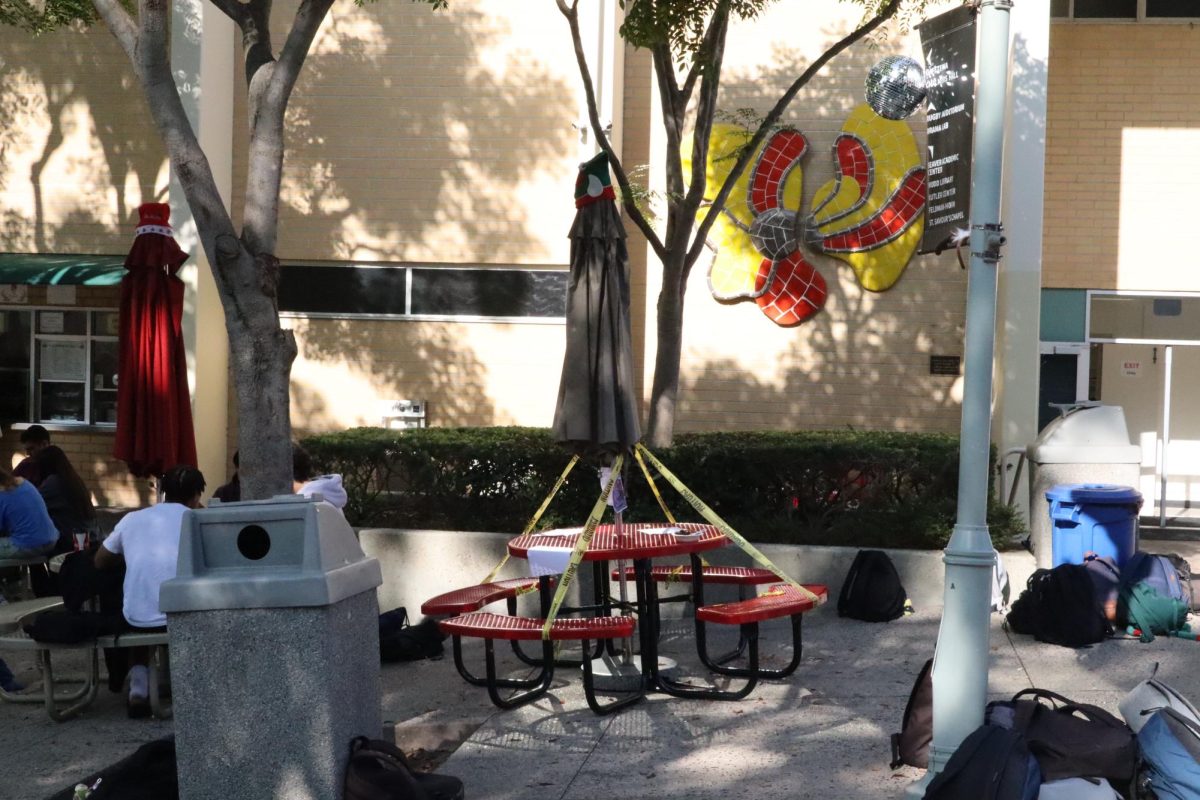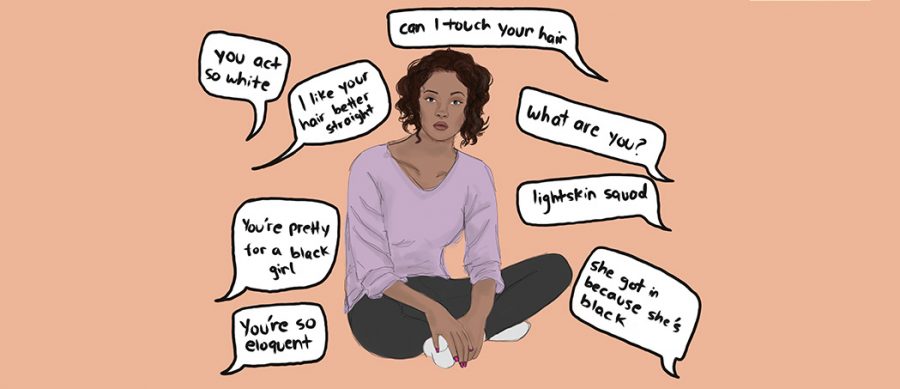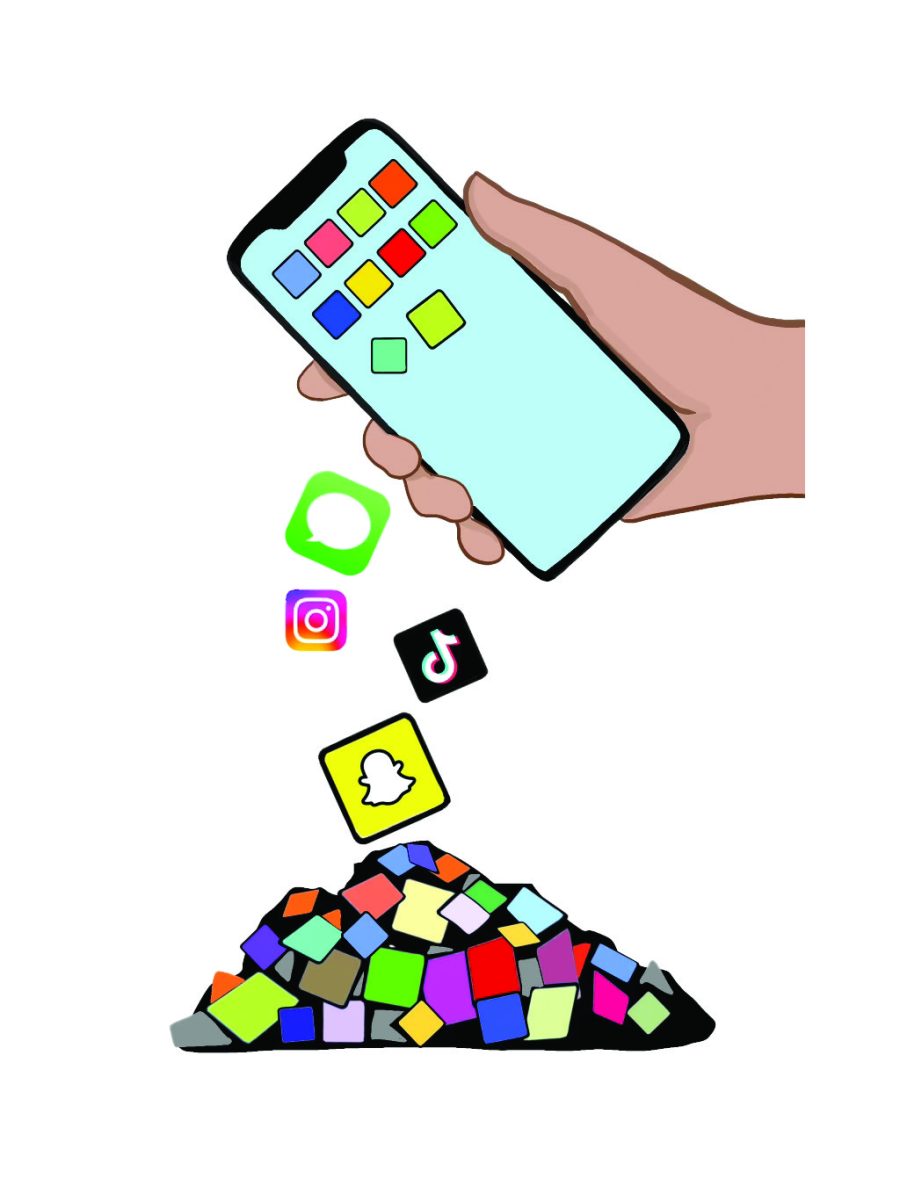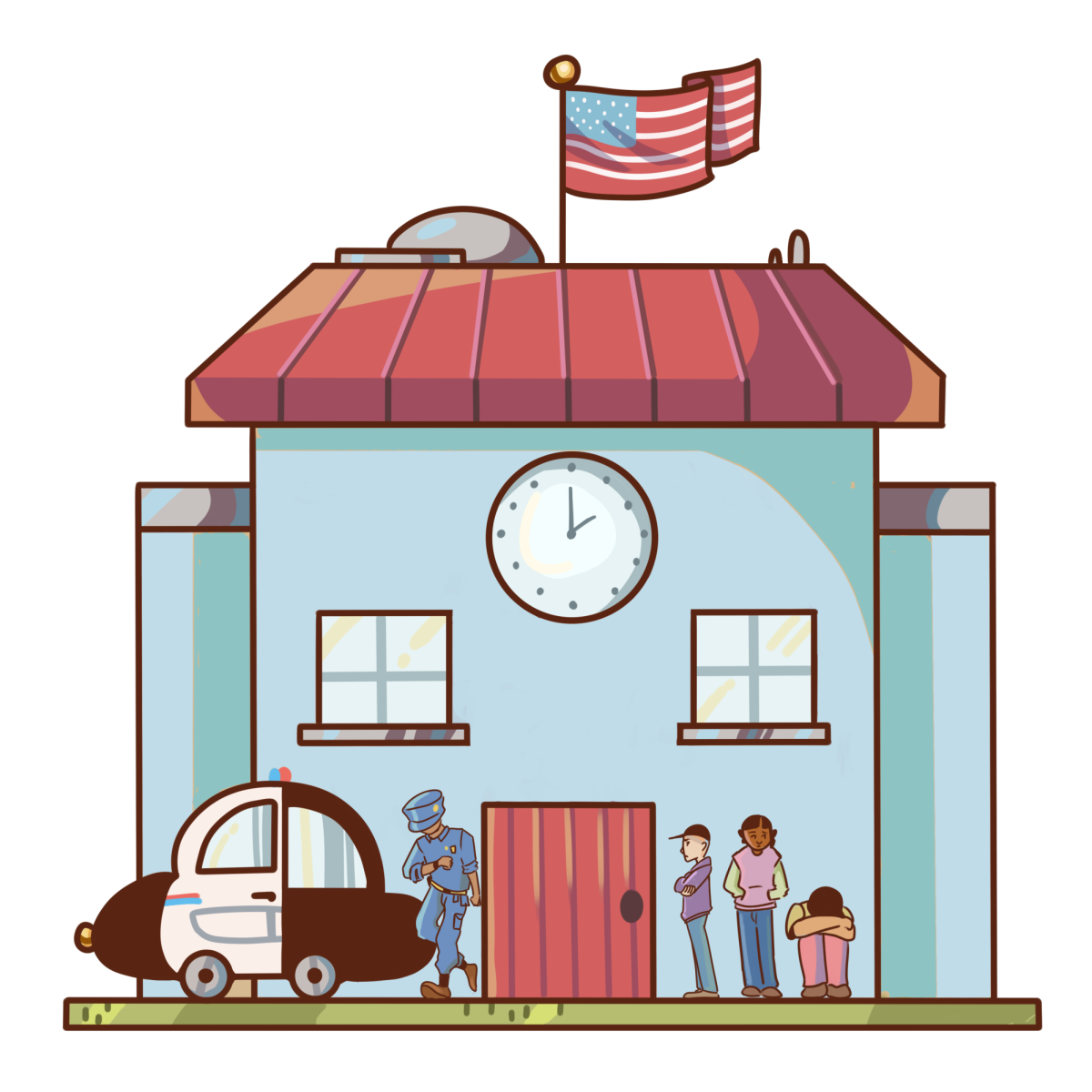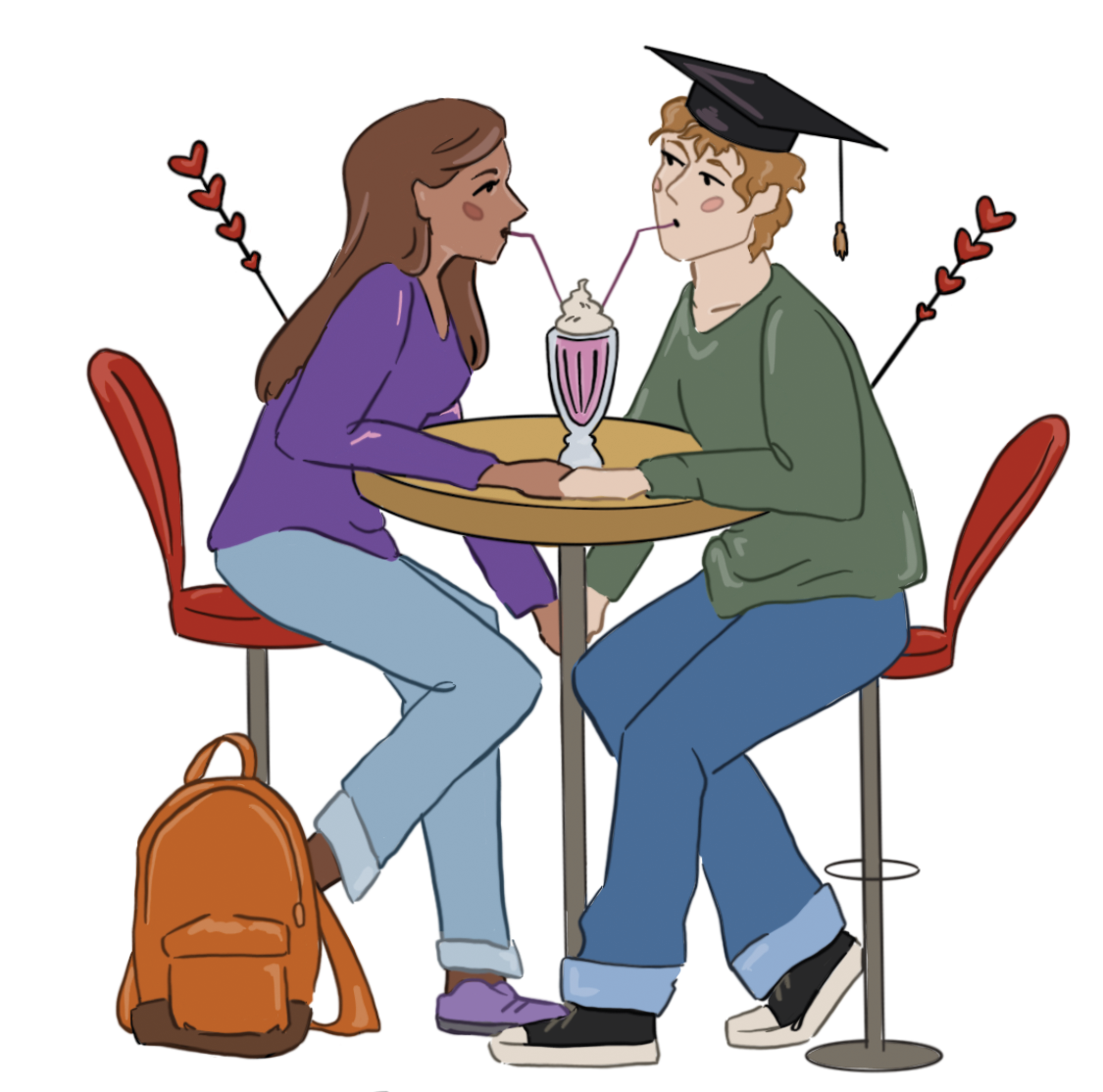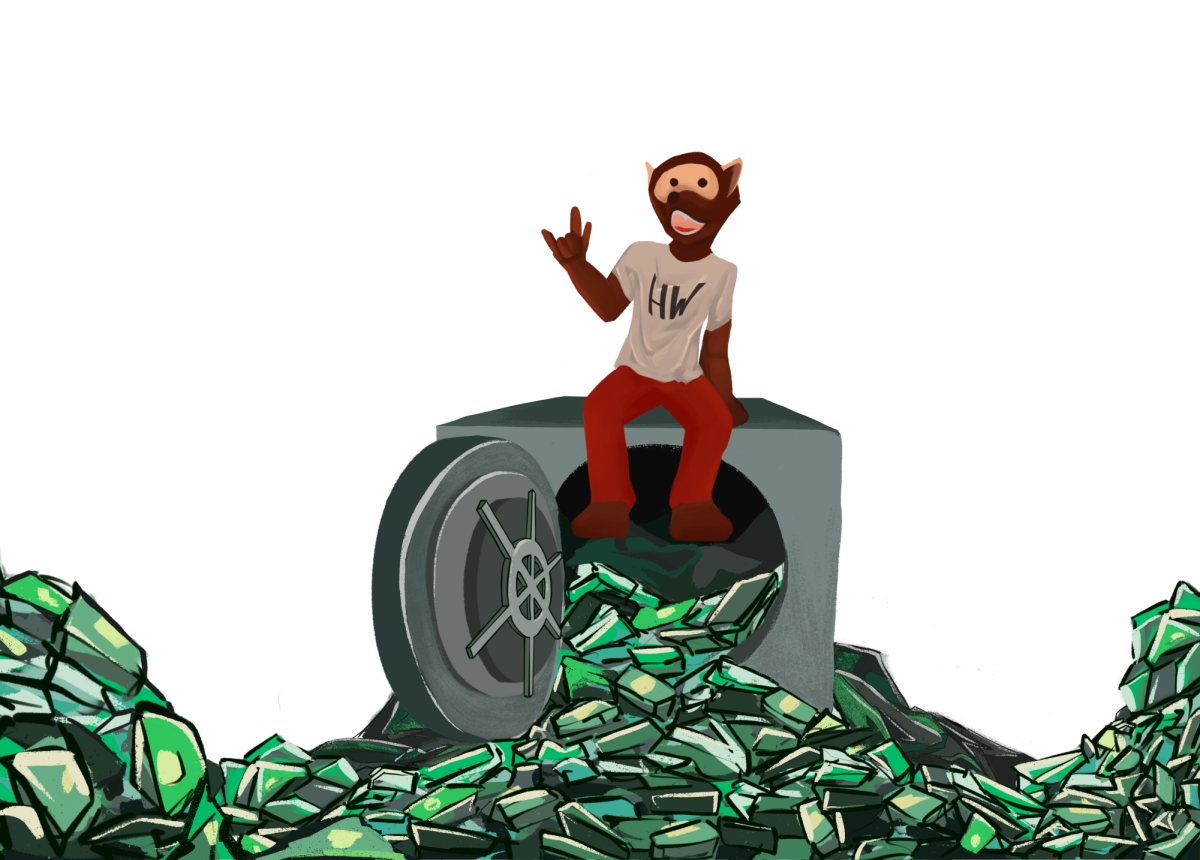As Xenia Bernal ’19 flipped through the pages of the 2017 yearbook, she was taken aback. Alongside silly photos of seniors in heart-shaped sunglasses and cheetah-print hats was a large photo of a group of boys in sombreros and fake mustaches posing with a huge bottle of Tapatío hot sauce. Bernal, a leader of the Latin American and Hispanic Student Organization, said she was surprised as a new student to see stereotypes being perpetrated in the yearbook.
“I remember my friend saw it before I did, so he was trying to make me not notice so that I wouldn’t get upset,” Bernal said. “It’s interesting to see how people didn’t really know how to address microaggressions because he just didn’t want me to cause a scene.”
The Oxford English Dictionary defines a microaggression as “a statement, action or incident regarded as an instance of indirect, subtle or unintentional discrimination against members of a marginalized group such as a racial or ethnic minority.”
Bernal said she has become less sensitive about these situations since coming to Harvard-Westlake.
“I don’t feel the same way I did in tenth grade,” Bernal said. “I think people don’t mean things intentionally when they do dress up and do stuff like that. People just like to poke fun at things.”
Clay Skaggs ’20 said students are too sensitive to some instances of microaggressions.
“Our modern society incentivizes being offended because the more things you determine to be offensive, the more ‘woke’ you are,” Skaggs said. “Next time you feel offended, ask yourself if you genuinely feel attacked or if you think you should feel attacked.”
In a Chronicle poll of 276 students, 49% of respondents said they didn’t think microaggressions are a serious issue.
Although the school has taken measures in the past to start a serious discussion about the impact of microaggressions, including a student-led presentation in Nov. 2016, Meera Sastry ’19 said she believed these attempts were not successful.
“I remember seeing a bunch of slides that had real instances of microaggressions that people had heard around campus,” Sastry said. “The reception to that was people trying to guess who said it and just taking those phrases and basically making them into memes. It basically just made the phrases seem meaningless. It raised people’s awareness about microaggressions, but it only made them want to make it into a joke rather than do anything about it.”
Sastry said she thought educator and diversity speaker Rosetta Lee, who was recently invited to speak at the school by the office of Diversity, Equity and Inclusion, was more effective at raising awareness about microaggressions.
“People will still make jokes about it because people make jokes about all all-school speakers,” Sastry said. “I think [Rosetta Lee] was better. I think some things that the speaker succeeded on were that she didn’t really talk down to us and she tried to give us good solutions. I could actually see myself or people I know using some of those tools, sort of thinking about approaching the situation in a more rational way.”
However, Black Leadership Awareness and Culture Club leader Leyah Barris ’19 said she believes the assembly, although it helped start discussions, may not have changed students’ mindsets about microaggressions.
“I don’t know if the message got across to students, but I think I heard a lot of teachers talk about it and how it helped them talk about having discussions,” Barris said. “I also think it helps people who are microaggressed figure out how to deal with it. I think that maybe it helped [students who are microaggressed more than those who aren’t]. It asked a lot of people who are microaggressed to try to teach other people, which I think is hard sometimes.”
Director of DEI Janine Jones said inviting Rosetta Lee to speak to the school community was the first step toward addressing microaggressions on campus. One common microaggression seen in educational environments is when teachers expect students from marginalized groups to represent the perspective of the entire group in classroom discussions, Jones said. Other common microaggressions include confusing students of color with each other and refusing to use students’ preferred gender pronouns.
As a Latino student, Daniel Arriaza ’19, said he sometimes feels singled out in class discussions about race because of his ethnicity.
“I feel like there are times throughout the day, especially in [Advanced Placement] Human Geography when we talk about immigration, people look at me for an answer,” Arriaza said. “I don’t necessarily feel offended by it because my parents were immigrants and I’m kind of comfortable with it, but I see how it’s easy for someone who is not as comfortable with the idea.”
While microaggressions can impact people negatively, Josh Lee ’19 said he believes they are not intended to cause harm.
“Of course, all microaggressions are unintentional because that’s the whole point of a microaggression,” Josh Lee said. “They’re not like macroaggressions. It’s not like something straight to their face. I think most microaggressions aren’t meant to be said. You have to be aware of such things, but I think people also need to toughen up.”
Jones said she hopes new DEI initiatives like inviting speakers will encourage the school community to rethink and recommit to creating a more inclusive environment.
“There is certainly a perception by some that microaggressions ‘don’t really matter’ or ‘aren’t a big deal,’” Jones said. “However, we bring speakers like Rosetta Lee to campus to educate our community because it strikes me as unlikely that people who are empathetic and compassionate truly want to ignore the feelings of others.”
LAHSO member Sophia Nuñez ’20 said she hoped those who do not believe that microaggressions are serious would try to empathize with other students’ experiences.
“For people who don’t see microaggressions as real, I’m very happy that they haven’t had to experience them,” Nuñez said. “But, I would also consider telling them that it’s just so important to listen to what other people have been through and experienced and not even necessarily put yourself in their shoes. Just listen to what someone has felt because of what has been said to them.”
“Our modern society incentivizes being offended because the more things you determine to be offensive, the more ‘woke’ you are,” Skaggs said. “Next time you feel offended, ask yourself if you genuinely feel attacked or if you think you should feel attacked.”
In a Chronicle poll of 276 students, 49% of respondents said they didn’t think microaggressions are a serious issue.
Although the school has taken measures in the past to start a serious discussion about the impact of microaggressions, including a student-led presentation in Nov. 2016, Meera Sastry ’19 said she believed these attempts were not successful.
“I remember seeing a bunch of slides that had real instances of microaggressions that people had heard around campus,” Sastry said. “The reception to that was people trying to guess who said it and just taking those phrases and basically making them into memes. It basically just made the phrases seem meaningless. It raised people’s awareness about microaggressions, but it only made them want to make it into a joke rather than do anything about it.”
Sastry said she thought educator and diversity speaker Rosetta Lee, who was recently invited to speak at the school by the office of Diversity, Equity and Inclusion, was more effective at raising awareness about microaggressions.
“People will still make jokes about it because people make jokes about all all-school speakers,” Sastry said. “I think [Rosetta Lee] was better. I think some things that the speaker succeeded on were that she didn’t really talk down to us and she tried to give us good solutions. I could actually see myself or people I know using some of those tools, sort of thinking about approaching the situation in a more rational way.”
However, Black Leadership Awareness and Culture Club leader Leyah Barris ’19 said she believes the assembly, although it helped start discussions, may not have changed students’ mindsets about microaggressions.
“I don’t know if the message got across to students, but I think I heard a lot of teachers talk about it and how it helped them talk about having discussions,” Barris said. “I also think it helps people who are microaggressed figure out how to deal with it. I think that maybe it helped [students who are microaggressed more than those who aren’t]. It asked a lot of people who are microaggressed to try to teach other people, which I think is hard sometimes.”
Director of DEI Janine Jones said inviting Rosetta Lee to speak to the school community was the first step toward addressing microaggressions on campus. One common microaggression seen in educational environments is when teachers expect students from marginalized groups to represent the perspective of the entire group in classroom discussions, Jones said. Other common microaggressions include confusing students of color with each other and refusing to use students’ preferred gender pronouns.
As a Latino student, Daniel Arriaza ’19, said he sometimes feels singled out in class discussions about race because of his ethnicity.
“I feel like there are times throughout the day, especially in [Advanced Placement] Human Geography when we talk about immigration, people look at me for an answer,” Arriaza said. “I don’t necessarily feel offended by it because my parents were immigrants and I’m kind of comfortable with it, but I see how it’s easy for someone who is not as comfortable with the idea.”
While microaggressions can impact people negatively, Josh Lee ’19 said he believes they are not intended to cause harm.
“Of course, all microaggressions are unintentional because that’s the whole point of a microaggression,” Josh Lee said. “They’re not like macroaggressions. It’s not like something straight to their face. I think most microaggressions aren’t meant to be said. You have to be aware of such things, but I think people also need to toughen up.”
Jones said she hopes new DEI initiatives like inviting speakers will encourage the school community to rethink and recommit to creating a more inclusive environment.
“There is certainly a perception by some that microaggressions ‘don’t really matter’ or ‘aren’t a big deal,’” Jones said. “However, we bring speakers like Rosetta Lee to campus to educate our community because it strikes me as unlikely that people who are empathetic and compassionate truly want to ignore the feelings of others.”
LAHSO member Sophia Nuñez ’20 said she hoped those who do not believe that microaggressions are serious would try to empathize with other students’ experiences.
“For people who don’t see microaggressions as real, I’m very happy that they haven’t had to experience them,” Nuñez said. “But, I would also consider telling them that it’s just so important to listen to what other people have been through and experienced and not even necessarily put yourself in their shoes. Just listen to what someone has felt because of what has been said to them.”



